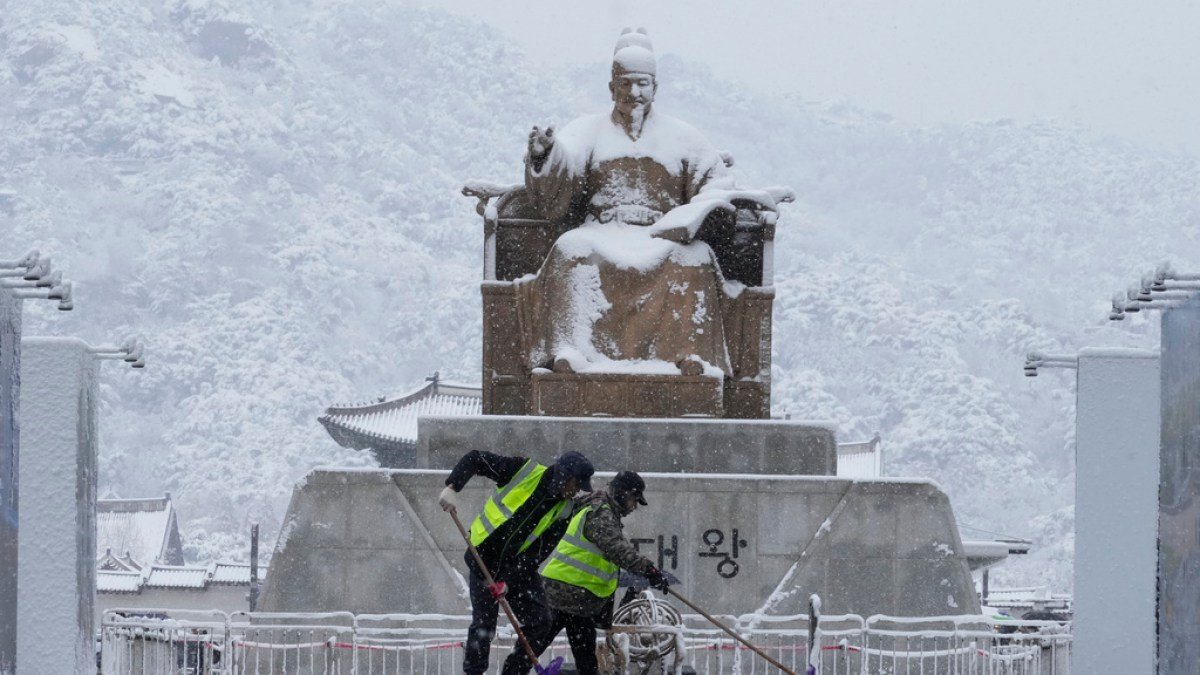Record snowfall in and around Seoul creates travel headache, with flights and ferries cancelled.
Heavy snowfall in South Korea has disrupted flights and ferries and killed at least three people.
The country grappled with its second day of record snow on Thursday, with the authorities reporting that three people had died in Gyeonggi province, where the capital, Seoul, is located.
One person died when a golf practice net loaded with snow collapsed in the city of Pyeongtaek, while another was struck by a falling tree in the city of Yongin, according to the Yonhap news agency.
On Wednesday evening, police reported that 11 people were injured in a 53-vehicle pile-up on a highway in the central city of Wonju in Gangwon province in the east of the country. It was unclear whether the accident had caused any deaths.
On Thursday, up to 40cm (15.7 inches) of snow had piled up in parts of Seoul by 11am (02:00 GMT), the Interior Ministry said, adding that 156 flights were cancelled and 104 ferry services disrupted.
Passengers at Seoul’s main airport, Incheon, faced delays of two hours on average on Thursday, with 14 percent of flights delayed and 15 percent cancelled, plane tracking website Flightradar24 showed.
The second day of snow prompted the city government to deploy 11,000 personnel and 20,000 pieces of equipment for snow removal operations in the capital.
Schools in Gyeonggi received permission to close on Thursday if needed, provincial authorities said.
Seoul on Wednesday recorded its heaviest November snowfall since records began more than a century ago, according to the country’s weather agency.
Authorities reported 131 temporary power outages, with 46 restored by the end of Wednesday.
The unusually heavy November snow has been attributed to the warmer-than-usual temperatures of seawaters west of the Korean Peninsula encountering currents of cold air.
Neighbouring North Korea has also received more than 10cm (4 inches) of snow in some areas between Tuesday and Wednesday, according to state broadcaster Korean Central Television.



















